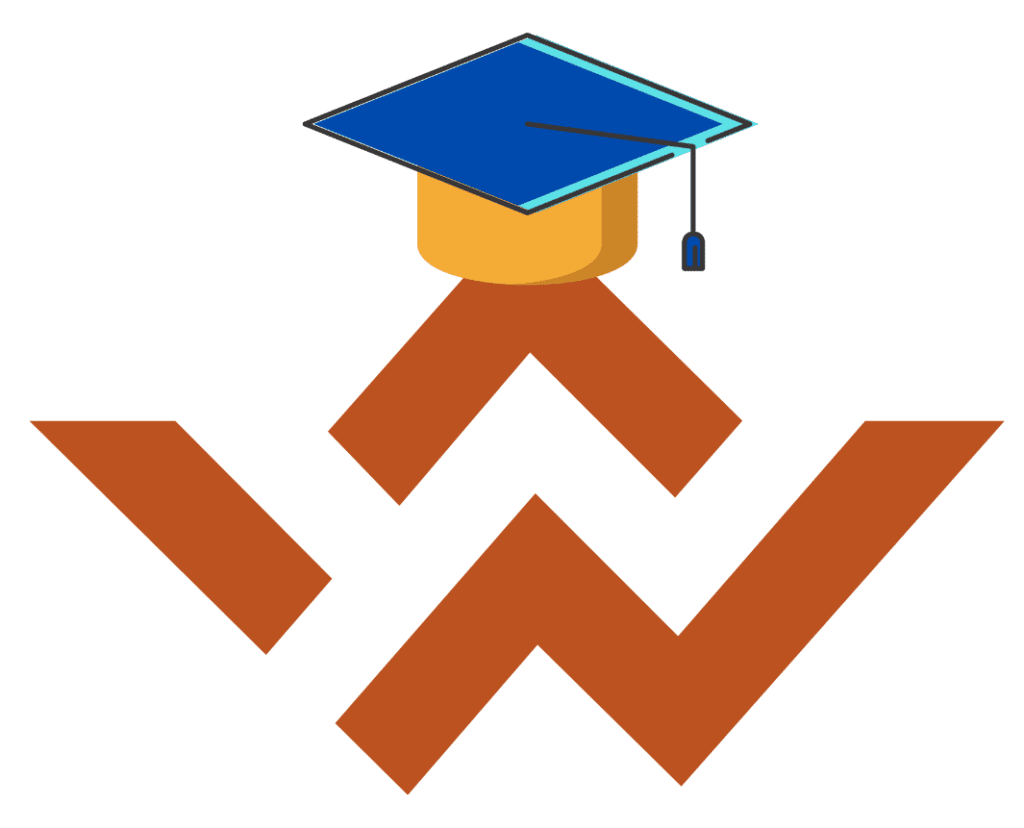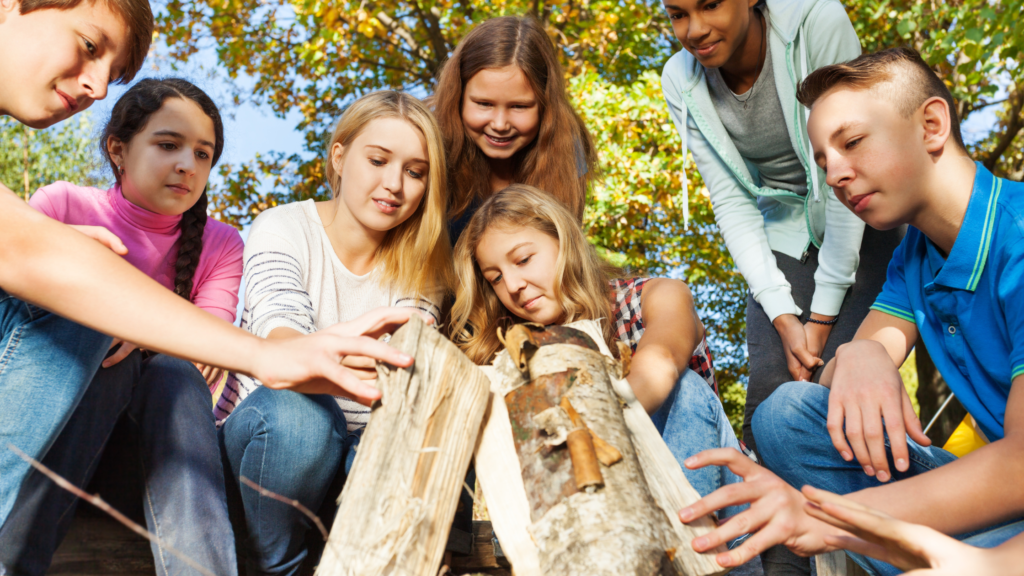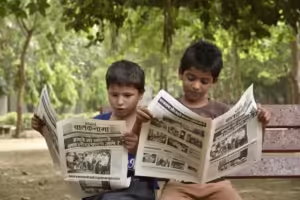Many of us interpret Montessori education with the images of toddlers engrossed in wooden puzzles for preschoolers practising practical life skills. But what about the older children? The Montessori philosophy extends far beyond the early years. It offers a unique and advantageous approach to middle and high school education.
According to research by Elizabeth Lapon, Middle school is a pivotal time. Adolescence brings rapid physical, social, and emotional changes. This creates a unique opportunity to nurture the “whole child.” It means addressing not just academics but also social-emotional well-being and a growing sense of self.
Interestingly, both the concept of middle school and Maria Montessori’s educational philosophy share a core value of supporting the holistic development of young adolescents. Let’s explore how these two approaches converge to educating this age group. This blog delves into the benefits of Montessori for older children, exploring how it fosters independence, deepens academic understanding, and ignites a passion for lifelong learning.
Understanding Montessori for Teens
The foundational ideas of the Montessori curriculum for older kids are still present, but they have been modified to take into account teenagers’ special interests and developmental stages.
Students at middle and high schools that follow the Montessori model are given the freedom to direct their learning. Through self-directed exploration, students are encouraged to follow their interests and passions instead of following a predetermined curriculum that teachers mandate. Students participate in individual research, group projects, and hands-on activities in these vibrant, learning-filled classrooms.
Is Montessori Right for Your Teenager?
Montessori education offers a unique and enriching learning environment for middle and high school students.
If you’re looking for an approach that fosters the following aspects, then Montessori is just right for your teen-
- Independence and self-directed learning
- A love of learning that goes beyond textbooks
- Deep academic understanding
- Essential life skills for the 21st century
As stated by AMS – Montessori Secondary programs, Middle and High School students, ages 12 – 18 integrate rigorous academic studies with purposeful work, preparing teenagers to become contributing adult citizens who are self-confident and possess skills needed to thrive in society.
The Benefits of Montessori Education for Adolescents
Teens who receive Montessori education are encouraged to become active participants in their learning process and are nurtured in their natural curiosity. Immersed in a culture of autonomy and self-discovery, adolescents at Montessori Middle and High Schools are empowered to develop abilities, self-assurance, and resilience. These skills are required to excel in both academic and real-world contexts through individualised learning experiences and a focus on practical application.
Self-Directed Learning to Leadership
A core tenet of Montessori education is self-directed learning. Montessori classrooms empower students to take ownership of their learning journey. Teachers, known as guides, act as facilitators, observing student interests and presenting materials that pique their curiosity.
Multi-age classrooms are another hallmark of Montessori education. Middle and high school classrooms typically encompass a three-year age range. This fosters a natural sense of leadership and mentorship. Older students solidify their understanding by teaching younger peers, while younger students benefit from role models and a sense of community.
Deepening Academic and Subject Understanding
The Montessori curriculum in middle and high school is rigorous and comprehensive. Subjects like maths, science, language arts, and history are explored in depth, often through hands-on projects and real-world applications. Students don’t just memorize facts; they actively engage with the material, building a strong foundation for future academic pursuits.
Montessori also strongly emphasizes interdisciplinary learning. Students see connections between different subjects, fostering a holistic understanding of the world. For example, while studying history, students might also explore the art and literature of the period, gaining a richer and more in-depth perspective.
Project-Based Learning and Real-world Applications
Montessori education emphasizes project-based learning. Students delve into topics that interest them, conducting research, collaborating with peers, and ultimately presenting their findings. This approach fosters a sense of ownership and allows students to connect their learning to real-world applications.
Service learning is another important aspect of Montessori education at the secondary level. Students engage in meaningful projects that give back to their communities, fostering social responsibility and a sense of purpose. This not only helps them develop empathy and compassion but also provides valuable experience in areas like teamwork and leadership.
Self-Confidence and Independence
Individualized instruction is another cornerstone. Guides tailor lessons to each student’s pace and learning style. This ensures that students are challenged appropriately and are neither bored nor overwhelmed. Struggling students receive targeted support, while advanced learners can delve deeper into topics that pique their interest.
Self-confidence and independence are also nurtured in Montessori classrooms. Students learn to take initiative, advocate for themselves, and navigate challenges with resourcefulness.
Cultivating Life Skills for the 21st Century
The Montessori approach goes beyond traditional academic subjects. It equips students with essential life skills that are crucial for success in the 21st century.
These include-
- Critical thinking and problem-solving- Students are encouraged to question, analyze, and find creative solutions.
- Research and information literacy- Students learn how to effectively research topics, evaluate sources, and communicate their findings clearly.
- Collaboration and communication- Teamwork is a vital part of the Montessori classroom, fostering effective communication and collaboration skills.
- Time management and self-organization- Students plan their work schedules, manage deadlines, and learn to prioritize tasks.
Questions For Your Teen
However, it’s important to remember that Montessori isn’t for everyone. Here are some questions to consider-
- Does your child enjoy taking the initiative and working independently?
- Is your child curious and intrinsically motivated to learn?
- Does your child value collaboration and working with others?
If you answered yes to these questions, then Montessori education could be a transformative experience for your teenager.
Final Take Away
Adolescence can be a challenging but exciting time. By understanding the developmental needs of young adolescents and embracing approaches that nurture the whole child, we can empower them to thrive. Whether it’s the concept of the middle school itself or the Montessori philosophy, both prioritize fostering independence, critical thinking, and a love of learning. By creating a supportive environment that embraces these values, we can equip middle and high schoolers with the skills and confidence. They need to navigate adolescence and become well-rounded individuals ready to take on the world.



